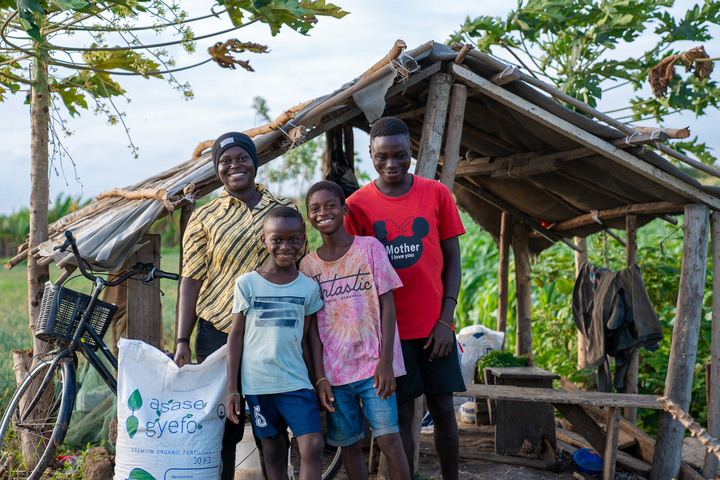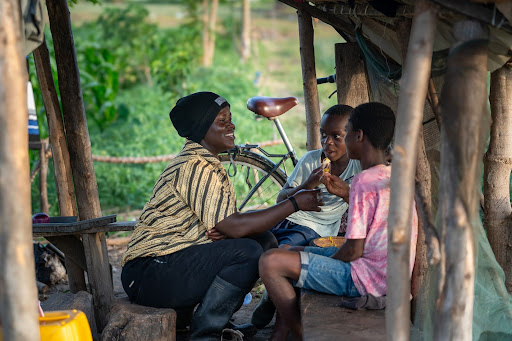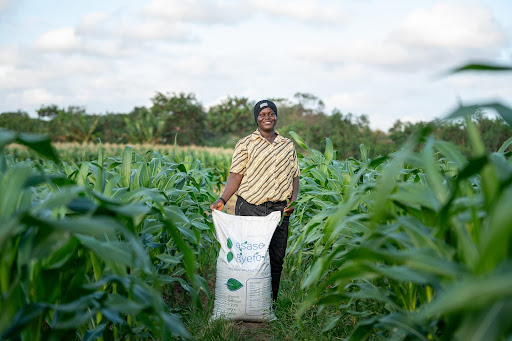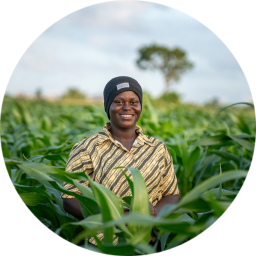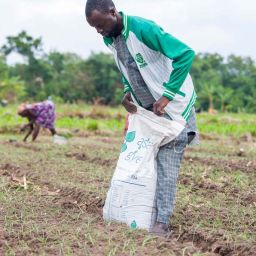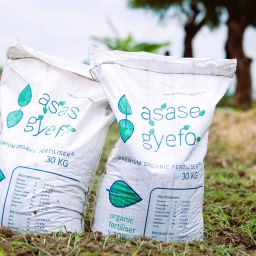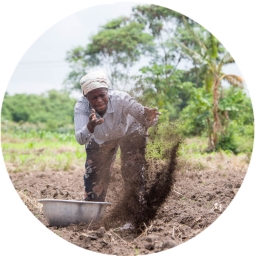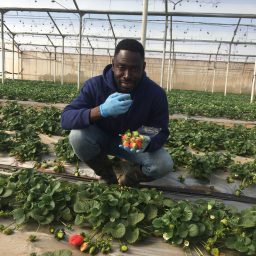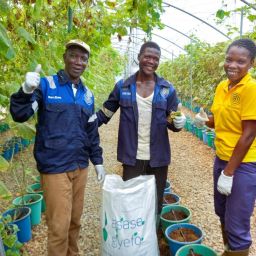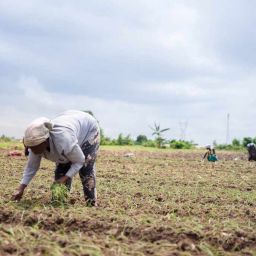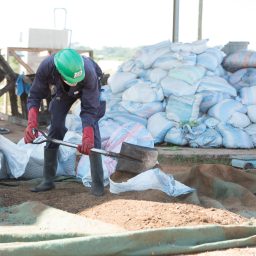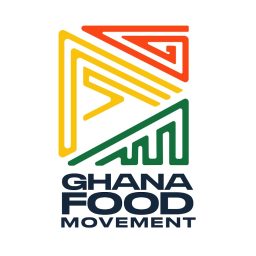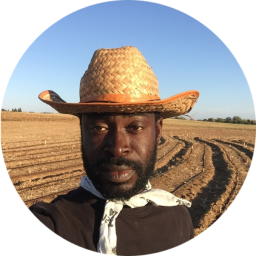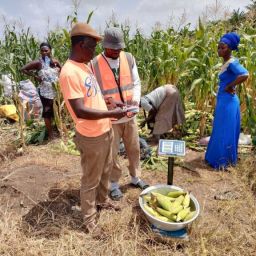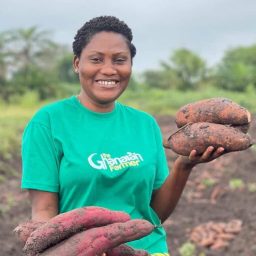Approximately 7 million smallholder farmers produce more than 90 percent of the food consumed in Ghana. Half of them are female. On the occasion of today’s Farmers’ Day, we visited a couple of farmers close to the Safisana plant in Ashaiman. One of these farmers was Ruby Akiti Ado (34) who grows maize, onion, and ayoyo. In the conversation with Ruby, we spoke about her farming life, the importance of fertilizers, and the challenges that farmers deal with in Ghana.
Can you tell us a bit more about yourself and how you became a farmer?
“My name is Ruby Akiti Addo, I am 34 years old and was born into a farming family. My dad was a farmer, so I learned about growing crops and plants from a very young age. As a kid, I accompanied my father to the farm and helped him on his land. Now, 20 years later, I have my farm together with my husband, he is the main farmer. We cultivate maize, onion, and ayoyo – a popular herb in Ghana used to make okra stew -. Together with my husband, I have five children. They go to school near our farm but spend much of their free time with us at the farm. Usually, I cook here and we all have dinner together before heading back home.”
how was the last farming season been for you?
“As a result of climate change, we dealt with higher droughts this year, which can affect crop yields a lot. I am lucky that our farming land is part of GIDA, Ghana Irrigation Development Authority, which means that we have an all-year-round irrigation plan for our farming land. The irrigation system has helped our crops to get the hydration they need. For farmers without irrigation, this year has been hard so far. During the rainy season, we got much less rain than usual, leaving our lands dry and crop yield low.”
how important is the use of fertilizers for your crops?
“In Ghana, all farmers highly depend on fertilizers. And even though we have an irrigation system on our farming land, we also make use of fertilizers. The land in Ghana naturally lacks organic matter, therefore the preferred choice of fertilizers is organic fertilizers. Two years ago, I tried Asase Gyefo Organic Fertilizer on my land for the first time. I was really surprised with the results! The soil, which is usually dry, was very healthy because of the rich nutrients in the fertilizer. Not only we noticed, the other farmers on this land did as well when they started to use the organic fertilizer. Besides the fertile soil, the crops were healthy and green and the yield was stronger than the yield using a chemical fertilizer, for example. Higher yields, mean higher income for us.
In Ghana, all farmers highly depend on fertilizers. And even though we have an irrigation system on our farming land, we also make use of fertilizers. The land in Ghana naturally lacks organic matter, therefore the preferred choice of fertilizers is organic fertilizers. Two years ago, I tried Asase Gyefo Organic Fertilizer on my land for the first time. I was really surprised with the results! The soil, which is usually dry, was very healthy because of the rich nutrients in the fertilizer. Not only we noticed, the other farmers on this land did as well when they started to use the organic fertilizer. Besides the fertile soil, the crops were healthy and green and the yield was stronger than the yield using a chemical fertilizer, for example. Higher yields, mean higher income for us.”
What is the biggest challenge you deal with as a farmer?
“The biggest challenge, for all of us, has to do with fertilizers. Currently, our government subsidizes chemical fertilizers to cultivate our crops. Therefore, chemical fertilizers remain most accessible for farmers. Especially those among us who have bigger lands, can simply not afford to buy organic fertilizers to cover their land, even though the effects of them are much better. It takes about 2 crop cycles to actually benefit from using organic fertilizer. That is a sacrifice that most farmers are often not able to make.
The sad thing is that the longer we keep making use of chemical fertilizers, the worse the quality of our land gets. I have seen it with my land before, when I was using chemical fertilizers, I could see the land getting dry, with every year it got harder to achieve a good yield. I hope the government will start subsidizing organic fertilizers like Asase Gyefo soon. It will make such a positive and sustainable difference in our nation’s food production!”
Howe Are organically produced foods perceived in the market?
“Unfortunately, there is still a lot of awareness-raising left to do in Ghana. At the farm, we understand and see the difference and quality that organic fertilizers bring. But at the market, fruits and vegetables produced with chemical fertilizers end up in the same basket as those cultivated with organic fertilizers, at the same price. The amount of people who can appreciate the value of organic products is still small in Ghana.”


